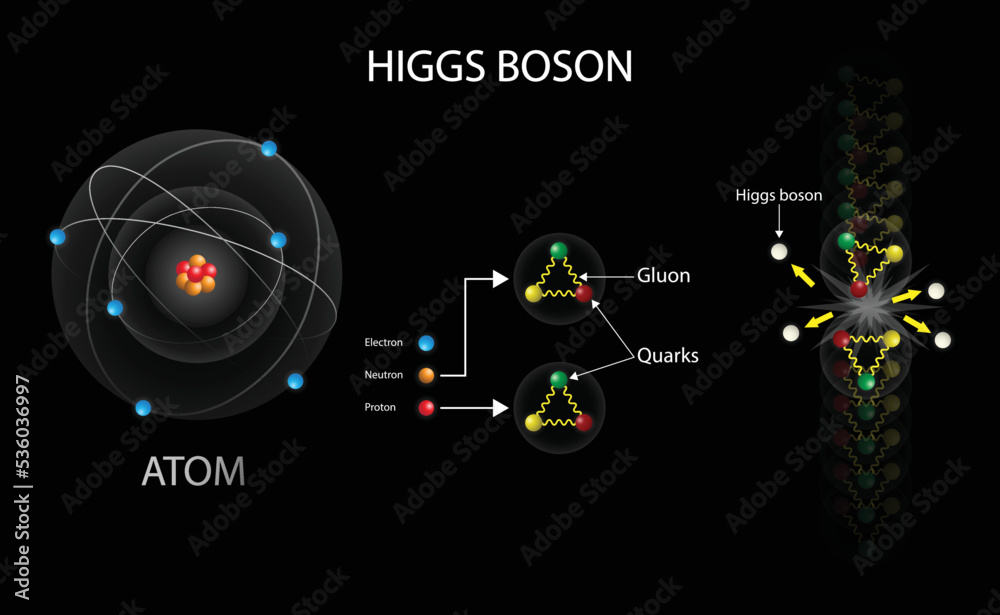Unraveling the Mysteries of the Higgs Boson: A Journey into the Heart of Particle Physics
A Journey into the Heart of Particle Physics
In the vast, intricate tapestry of the universe, there exists a subatomic particle that has captured the imagination of scientists and laypeople alike—the Higgs boson. Discovered in 2012 by researchers at the European Organization for Nuclear Research (CERN), the Higgs boson represents a cornerstone in our understanding of the fundamental nature of matter and the forces that govern the cosmos. In this article, we embark on a journey to explore the significance of the Higgs boson, its discovery, and its profound implications for the realm of particle physics.

At the heart of the Standard Model of particle physics lies the quest to elucidate the fundamental building blocks of the universe and the interactions between them. According to this model, particles acquire mass through their interactions with the Higgs field, a pervasive field that permeates all of space. The Higgs boson is the quantum excitation of this field—a ripple in the fabric of the cosmos that endows other particles with mass.
The search for the Higgs boson was a monumental undertaking spanning decades and involving thousands of scientists and engineers from around the world. At CERN, the largest particle physics laboratory on Earth, the quest culminated in the construction of the Large Hadron Collider (LHC), a colossal particle accelerator capable of probing the fundamental constituents of matter with unprecedented energy and precision.
On July 4, 2012, the world watched with bated breath as researchers at CERN announced the discovery of a new particle consistent with the long-sought Higgs boson. The discovery marked a triumph of human ingenuity and collaboration, confirming a key prediction of the Standard Model and shedding light on the mechanism responsible for mass generation in the universe.
But what makes the Higgs boson so special? To understand its significance, we must delve into the intricacies of particle physics. In the absence of the Higgs field, particles would move freely at the speed of light, devoid of any mass. However, as particles interact with the Higgs field, they experience resistance, akin to swimming through molasses. This resistance manifests as mass, conferring substance and structure upon the universe.
The discovery of the Higgs boson not only validated the theoretical framework of the Standard Model but also raised new questions and avenues for exploration. For instance, the mass of the Higgs boson itself poses a puzzle—why is it so much lighter than other particles in the Standard Model? Some physicists speculate that the Higgs boson may be a harbinger of new physics beyond the Standard Model, offering tantalizing clues to the mysteries of dark matter, supersymmetry, and the unification of fundamental forces.

Moreover, the implications of the Higgs boson extend far beyond the realm of particle physics, permeating fields as diverse as cosmology, astrophysics, and even philosophy. By elucidating the origin of mass, the Higgs boson provides crucial insights into the evolution of the universe, from the primordial soup of the Big Bang to the formation of galaxies and stars. It is a testament to the power of human curiosity and imagination, driving us to unravel the mysteries of existence itself.
In addition to its scientific significance, the discovery of the Higgs boson exemplifies the collaborative spirit of modern science. The pursuit of knowledge knows no borders, as researchers from across the globe unite in a shared quest to unlock the secrets of the cosmos. From the design and construction of the LHC to the analysis of petabytes of data, the discovery of the Higgs boson embodies the collective effort of countless individuals striving towards a common goal.
Looking to the future, the study of the Higgs boson promises to revolutionize our understanding of the universe and our place within it. With the advent of next-generation particle accelerators and experimental techniques, scientists are poised to delve even deeper into the subatomic realm, probing the mysteries of dark matter, quantum gravity, and the elusive nature of reality itself.
In conclusion, the discovery of the Higgs boson represents a triumph of human intellect and collaboration, illuminating the fundamental fabric of the cosmos and paving the way for future discoveries. From its humble beginnings as a theoretical concept to its realization in the laboratories of CERN, the Higgs boson has captivated the imagination of generations, inspiring us to explore the universe with wonder and curiosity. As we continue to unravel the mysteries of the cosmos, the Higgs boson stands as a beacon of scientific inquiry, guiding us towards a deeper understanding of the universe and our place within it.
we have also wrote many more article on technology you can watch it here
